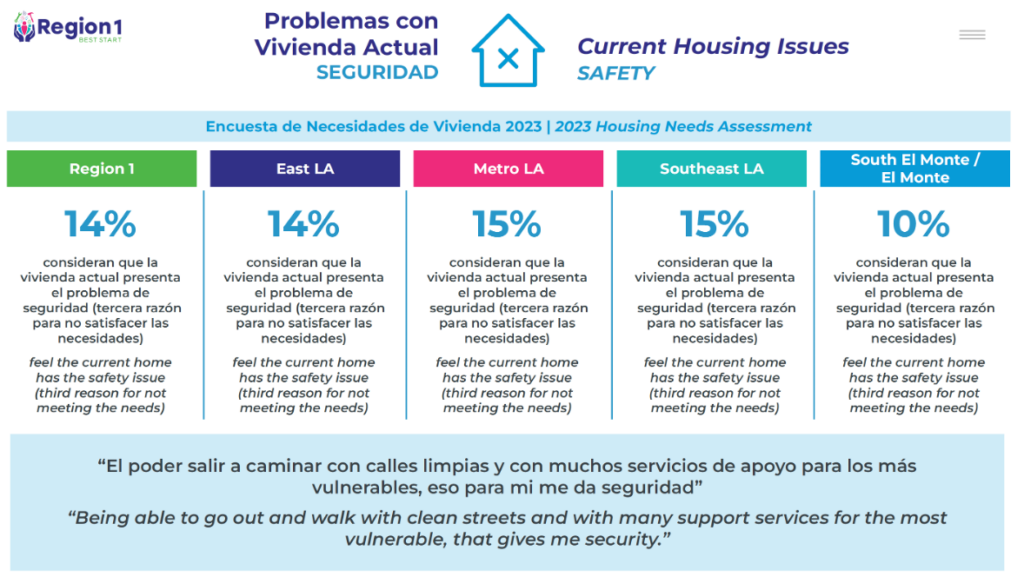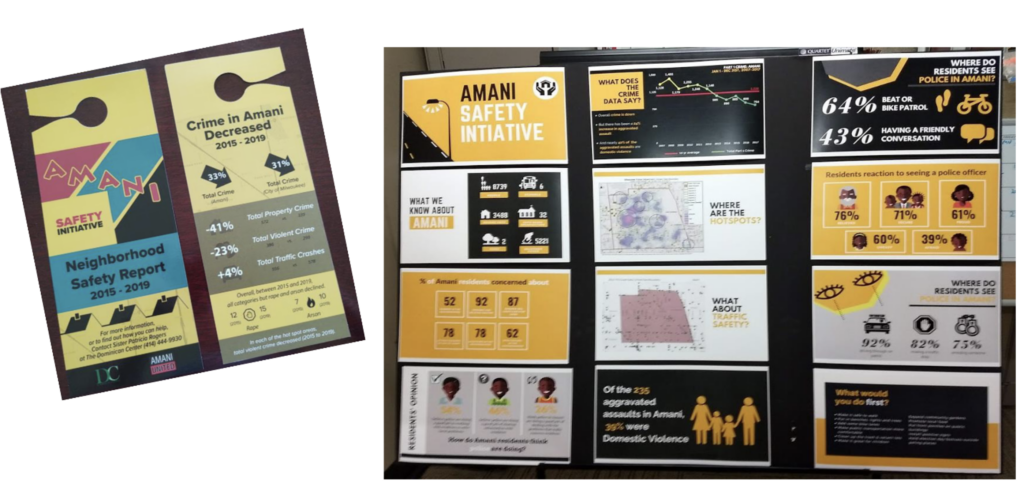We’re Kathy Pettit and Leah Hendey, and we codirect the National Neighborhood Indicators Partnership (NNIP)—an almost-30-year-old network with partner organizations in 32 cities that helps local groups and people access and use to the data they need and the help they need to use it to ensure all neighborhoods are places where people can thrive.
Aligned with both NNIP values and AEA guiding principles, evaluators should strive to maximize the evaluation’s benefits for everyone associated with the evaluation and who contributed data. The evaluation’s funder can’t be the sole audience for results.
Returning data to the community needs to be an intentional part of the evaluation design, which requires not only resources and time but also creativity. We share tips from NNIP Partners and our connections with other community groups to inspire you. There’s a range of lightweight to more-intensive ways to share your evaluation’s insights, and you can select how to share depending on the audience and your current and hoped-for relationship with the community.
Hot Tips
Be creative!
Most people won’t read a long report, so consider creating a one-page summary document or brief web page with the high-level findings. NNIP Partner Data You Can Use in Milwaukee created door hangers to return key information from a survey on public safety to the neighbors. For virtual engagements, Para Los Niños in Los Angeles created “data placemats” disaggregating the data by neighborhood and including quotes from residents for each topic area.
Promote action.
Residents participating in data collection want to know their information will help improve programs and outcomes. Rhode Island KIDS Count researched conditions in the community that promote healthy weight in children, like access to healthy food and opportunities for physical activity. In addition to a full report, they created a one-page handout (PDF) in Spanish and English that recapped the community recommendations and gave people brief talking points for their elected or school officials. It also included a list of organizations that people could connect with to stay involved with the issue.
Expand who tells the story.
The people most directly affected by the program have powerful insights and solutions to share. Data You Can Use often supports residents so they can interpret and share findings. For the public safety initiative, they created banners, slides, and talking points for residents to present to other residents. During the pandemic, they held “data chats” for people to review and discuss health conditions in their neighborhoods and follow-up actions. They also produced a presentation kit with data digests, worksheet slides, and scripts for residents to present findings in other forums. If you don’t have relationships with the people affected by your evaluation, you could also partner with community groups or national interest groups to help them share out the findings.
Evaluations are burdensome to program participants. Acknowledging that burden and returning the findings to community members in a way they can engage with is one way to honor their time and show their shared insights were valuable. Evaluators can all do more, even if it’s a small step, to make the results more accessible, easily digestible, and geared toward informing action.
Rad Resources
“Data Placemat” from Para Los Niños

Door Hangers with infographics from Data You Can Use

The American Evaluation Association is hosting Urban Institute week. The contributions all this week to AEA365 come from staff at the Urban Institute, a nonprofit research organization that provides data and evidence to help advance upward mobility and equity. Do you have questions, concerns, kudos, or content to extend this AEA365 contribution? Please add them in the comments section for this post on the AEA365 webpage so that we may enrich our community of practice. Would you like to submit an AEA365 Tip? Please send a note of interest to AEA365@eval.org. AEA365 is sponsored by the American Evaluation Association and provides a Tip-a-Day by and for evaluators. The views and opinions expressed on the AEA365 blog are solely those of the original authors and other contributors. These views and opinions do not necessarily represent those of the American Evaluation Association, and/or any/all contributors to this site.
